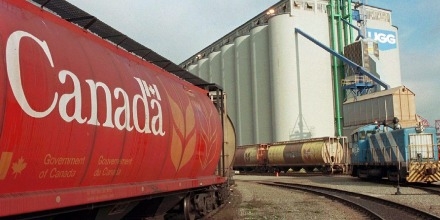The President of the Agricultural Producers Association of Saskatchewan (APAS) is the latest in a long line of people trying to convince the Senate Ag Committee to pass Bill C-234.
Ian Boxall wrote a letter, urging the upper chamber to pass the carbon tax exemption on propane and natural gas used to dry grain and heat barns.
“I just want to make sure that we reinforce to the Senators how important this exemption is for producers,” Boxall said. “At a time when we’re having to dry grain and make that investment to ensure that our grain is in good condition for sale and storage, we’re already having a tough fall when it comes to drying grain.
“You just want to ensure that we leave that money in producers hands so we can continue to invest in innovation for our farms and for our futures.”
Boxall addressed the committee virtually Thursday morning with a simple message: Bill C234 is simple, let’s not make it more complicated.
The biggest point he tried to get across to the committee was farmers are innovators and great stewards of the land when they aren’t bogged down by government policy.
“I think farmers care more about the environment than we ever get credit for,” Boxall stated. “We invented zero-till here in Saskatchewan – that’s a gift we’ve given to Canada and to the world really…and that is something that has sequestered millions of tons of carbon and we get very little credit for it.
“Farmers have always been innovators and we will always continue to be innovators to ensure the financial and environmental sustainability of our farms, and I think that’s an important point that everyone needs to understand is just how innovative we have been without government pressure.”
The bill already passed third reading in the house of commons with full support from all of the opposition parties and even some Liberals. But a handful of Senators aren’t convinced that there aren’t viable alternatives available to farmers when it comes to drying grain or heating barns.
One Senator last week even suggested we look at examples being used by farmers high in the Andes of South America.
The Commons ag committee agreed to a sunset clause, in that as new technologies come on-line over the next 8 years, the exemption could be eliminated.
Many of the senators believe rebates introduced by the federal government are sufficient, but quite a few disagree.
“It is a very blunt instrument that really does not reflect the intent of, what we believe, is a critical tool in ensuring farmers have capital to invest in their operations,” said Scott Ross with the Agriculture Carbon Alliance, who spoke before the committee this week.
“I think the other facet to that is so critical is, it’s simply not the size and nature of your business, it’s where you’re located. The region and the climate you’re experiencing have an immense impact on many of these practices as does the point that was raised earlier access to infrastructure; that can be a fundemental driver of the extent to which you’re exposed to carbon surcharges that are beyond you’re control.” he continued.
Ross’ answer was in response to a question asked by Alberta Senator Paula Simons, who earlier stated that government officials who testified on Thursday, about how the carbon tax rebate is calculated. Simons claims it is based on expenses rather than how much natural gas or propane is used.
“This seems to be, for me, backwards to a certain extent because you can have a large cattle operation in Alberta and not use that much power because your cattle is out on the range, versus having a smaller business that is really carbon intensive.” Simons said.
In the testimony from earlier today, Nicholas Rivers with the University of Ottawa says “grains are an internationally traded commodity, and there are legitimate concerns that the carbon price puts Canadian grain farmers at a disadvantage relative to their international peers.”
Rivers says Bill 234 would address those concerns, however, it could lead to a lack of incentive to reduce greenhouse gas emissions.
The bill needs the Senate’s go-ahead for it to become law.
(With files from Dean Thorpe, CFCW)



